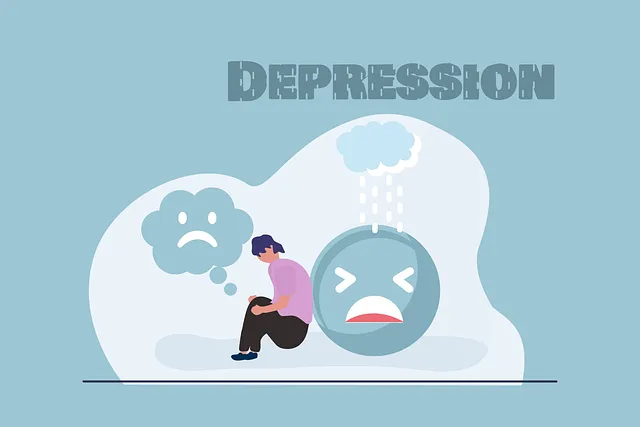Golden Kaiser Permanente mental health providers employ a proactive, holistic approach to patient safety by integrating comprehensive risk assessment, evidence-based practices, and personalized harm minimization plans. Their framework emphasizes early intervention, emotional intelligence, and strategic planning, fostering strong therapeutic bonds and raising mental health awareness. Through regular evaluation, continuous improvement, and dedicated training, they ensure high-quality, compassionate care that minimizes harm and promotes resilience among patients and staff.
In the realm of healthcare, risk assessment and harm minimization planning are indispensable tools for ensuring patient safety. This comprehensive guide explores these critical processes, focusing on the renowned Kaiser Permanente Mental Health Framework as a model for effective harm reduction. We delve into practical steps for developing robust plans, highlighting the role of mental health providers in Golden Kaiser Permanente’s successful approach to fostering long-term safety and well-being.
- Understanding Risk Assessment: A Cornerstone of Safe Care
- The Kaiser Permanente Mental Health Framework: A Model for Harm Minimization
- Practical Steps for Developing a Comprehensive Harm Minimization Plan
- Continuous Evaluation and Improvement: Ensuring Long-Term Safety and Well-being
Understanding Risk Assessment: A Cornerstone of Safe Care

Risk assessment is a fundamental process in healthcare, especially for mental health services, ensuring that care providers offer safe and effective treatment. At Kaiser Permanente, renowned for its comprehensive healthcare model, mental health providers employ rigorous risk assessments as a cornerstone of patient care. This involves systematically evaluating a patient’s history, current state, and potential triggers to identify risks of harm or relapse. By understanding these risks, Golden Kaiser Permanente mental health professionals can tailor interventions and develop personalized harm minimization plans.
These plans often include strategies such as Emotional Regulation techniques, Trauma Support Services, and Mindfulness Meditation—all proven tools in mitigating risks and promoting patient well-being. Through proactive risk assessment and tailored planning, Kaiser Permanente’s mental health providers strive to prevent adverse outcomes and ensure that patients receive the highest level of safe and compassionate care.
The Kaiser Permanente Mental Health Framework: A Model for Harm Minimization

The Kaiser Permanente Mental Health Framework is a comprehensive guide for mental health providers, offering a structured approach to harm minimization and patient care. This framework prioritizes the well-being of individuals by focusing on early intervention and evidence-based practices. By integrating Emotional Intelligence into their practice, mental health professionals can foster strong therapeutic relationships, enhancing communication and understanding. This, in turn, boosts Confidence among patients, encouraging them to actively participate in their mental health journey.
The model encourages a holistic assessment, considering various factors that contribute to an individual’s mental health status. By raising Mental Health Awareness among the Golden Kaiser Permanente mental health providers, they can better identify at-risk individuals and implement tailored interventions. This proactive strategy aims to minimize potential harm by promoting resilience and providing timely support, ensuring optimal patient outcomes.
Practical Steps for Developing a Comprehensive Harm Minimization Plan

Developing a comprehensive harm minimization plan requires strategic steps that cater to various aspects of risk assessment. The process begins with identifying potential hazards and vulnerabilities within the organization, focusing on areas where individuals might be at risk, such as mental health concerns or emotional distress. Golden Kaiser Permanente mental health providers emphasize the importance of proactive measures in fostering a supportive environment. This involves conducting thorough research and data analysis to understand current trends and patterns, enabling informed decision-making.
Implementing effective strategies includes organizing Stress Management Workshops that introduce Mind Over Matter principles and enhance Emotional Regulation skills. By fostering these abilities, organizations can empower individuals to navigate challenges better. Regular training sessions, policy revisions, and dedicated support systems contribute to a robust harm minimization plan, ensuring the well-being of employees or clients.
Continuous Evaluation and Improvement: Ensuring Long-Term Safety and Well-being

At Golden Kaiser Permanente, mental health providers recognize that delivering safe and effective care is an ongoing process. Continuous evaluation and improvement are integral to ensuring long-term safety and well-being for both patients and practitioners. This involves regularly reviewing and updating risk assessment strategies, incorporating new research findings, and fostering a culture of learning from both successes and mistakes. By adopting empathy building strategies and implementing robust communication techniques, mental health professionals can create an environment that encourages open dialogue, promotes patient engagement, and facilitates proactive harm minimization planning.
Through regular self-assessment and peer review, Golden Kaiser Permanente’s mental health providers stay abreast of the latest trends in risk assessment for mental health professionals. They actively participate in ongoing training to enhance their communication strategies, ensuring that they can effectively convey complex information and build strong therapeutic alliances. This commitment to continuous improvement not only strengthens patient outcomes but also fosters a resilient and adaptable workforce prepared to meet the evolving challenges of providing quality mental health care.
Risk assessment and harm minimization planning are essential components for providing safe and effective care, especially within the context of mental health services. The Kaiser Permanente Mental Health Framework serves as a robust model, guiding golden Kaiser Permanente mental health providers to navigate complex scenarios and ensure patient well-being. By following practical steps for developing comprehensive plans and continuously evaluating practices, healthcare professionals can create a culture of safety and foster positive outcomes for all clients.






